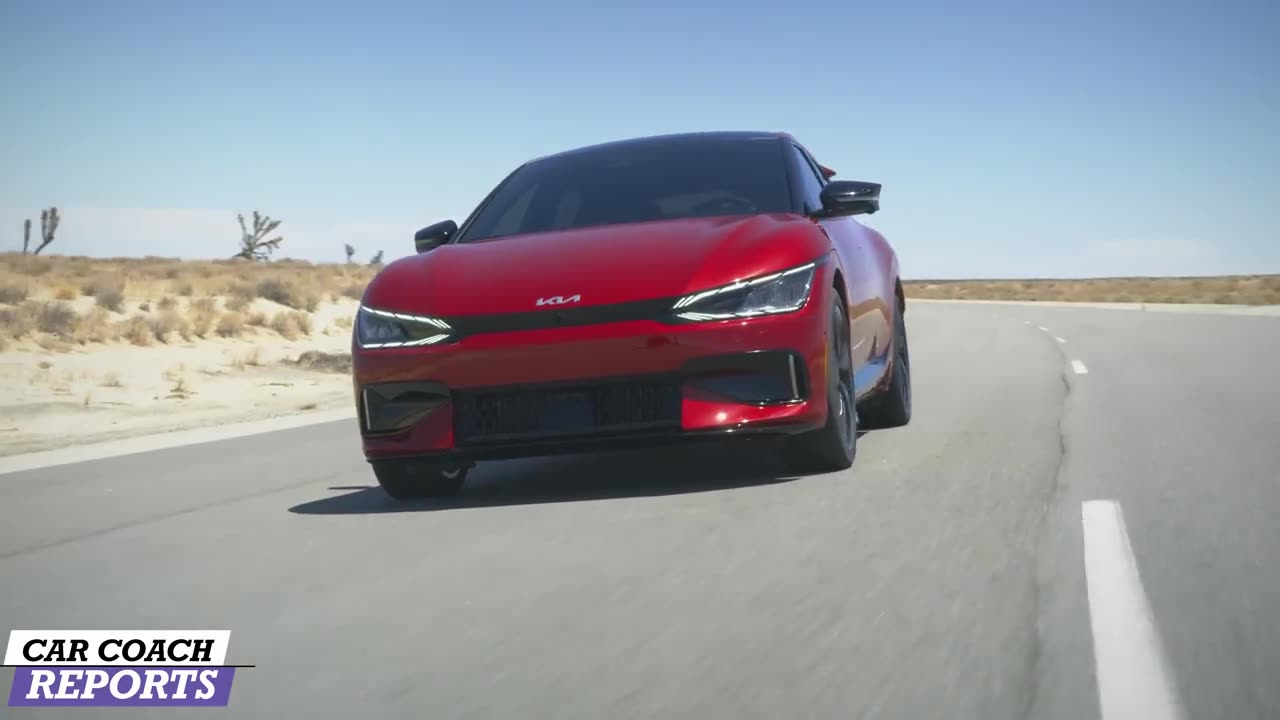Premium Only Content

Electric vehicle weight poses threat to current road infrastructure, safety experts warn?
(WND News Center) — If all of the existing headaches for those pushing expensive electric vehicles on resisting American consumers could vanish, there’s still a big one that may have no ready solution.
Already, it appears the U.S. could end up dependent on unfriendly nations for materials for all those batteries. Then there’s the fact that the nation’s grid simply can’t support all that recharging – California already has been sending out advisories for owners not to charge. And then there’s the limited range, extended recharging times, both worsened by bad weather.
But now a report in the Washington Times explains that those batteries are heavy, and EVs can weigh up to 50 percent more than internal combustion motor vehicles.
And that weight damages roads, bridges and parking garages, with those vehicles easily plowing through safety guardrails while posing a higher danger to other drivers, pedestrians and bicyclists traveling the same routes.
“The problems associated with EVs are poised to grow as more consumers purchase the cars under the Biden administration’s plan to eliminate gas-powered vehicles and the tailpipe emissions that come with them,” the report explained.
It explained engineers writing recently for Structure Magazine suggested construction companies, and building codes, need to make accommodation for the higher weight.
Parking garages, they said, should be redesigned to hold more weight.
That’s because some hold hundreds of vehicles, and just one EV. A Ford truck, weighs in at 8,240 pounds, nearly a ton more than the gas-powered version of the same pickup.
“Significantly increasing passenger vehicle weights combined with recently reduced structural design requirements will result in reduced factors of safety and increased maintenance and repair costs for parking structures,” the engineers wrote. “There are many cases of parking structure failures, and the growing demand for EVs will only increase the probability of failure.”
Then there are those guardrails, installed to minimize damage when traffic goes awry.
They are installed between lanes for traffic moving opposite directions, between lanes and edge drop-offs and more.
That concern comes out of a procedure at a test facility in Nebraska, where examiners took a 3.6-ton Rivian R1 and sent it into a metal guardrail at 62 mph, first headon, then at an angle.
Both times it “ripped through” the guardrail and continued into what would have been lanes for oncoming traffic, the report revealed.
The conclusion was simple: making vehicles much heavier means “a lot more force” is required to redirect the vehicle.
University of Nebraska professor Cody Stolle, told the Times, “We found these guardrail systems don’t have great compatibility with these [electric] vehicles yet.”
The heavier vehicles also could cause more damage to other vehicles in collisions.
The report said an insurance institute expert confirmed the weight provides more protection to those inside the EV, but at the expense of anyone in another vehicle involved in an accident.
Joe Biden has insisted over and over that consumers should be buying the much more expensive and often less reliable electric cars the government programs subsidize.
The weight differences are significant. The report said the Tesla Model Y is more than 4,400 pounds while the similar size gas-powered Honda Accord is 3,300. Kia makes multiple SUVs, with the gas model weighting 3,900 pounds and the EV unit nearly 6,500.
Residential roads already are not engineered to handle the heavy weight on highways, and the lifespan of bridges could be reduced with much heavier traffic, the report said.
Sen. Marco Rubio, R-Fla., recently said, “EVs are typically much heavier compared to similarly sized, gas-powered vehicles, which will put additional strain on America’s transportation infrastructure. The American Society of Civil Engineers warns that an increase in EVs could substantially reduce the lifespan of roads and bridges, necessitating further investment in infrastructure.”
https://www.lifesitenews.com/news/electric-vehicle-weight-poses-threat-to-current-road-infrastructure-safety-experts-warn/?utm_source=daily-usa-2024-02-17&utm_medium=email
-
 6:01
6:01
JUST A HOMELESS MAN
11 months agoTrump in 1999: Oprah would be my VP choice
197 -
 9:40
9:40
Lara Logan
2 hours agoHonoring Charlie Kirk - Going Rogue with Lara Logan - LIVE
28.3K28 -
 3:03:45
3:03:45
The Charlie Kirk Show
5 hours agoCharlie Kirk: A Life of Faith, A Legacy That Endures
451K385 -
 3:58:08
3:58:08
The Rubin Report
6 hours agoCharlie Kirk’s Best Moments on The Rubin Report
68.5K24 -
 UPCOMING
UPCOMING
FomoTV
17 hours ago🕯 Charlie Kick Assassinated — Radical Campus Rhetoric Made This Possible | Fomocast 09.11.25
18.8K3 -
 3:08:36
3:08:36
Right Side Broadcasting Network
6 hours agoLIVE REPLAY: Latest News from the Trump White House - 9/12/25
76.3K21 -
 LIVE
LIVE
Dr Disrespect
6 hours ago🔴LIVE - DR DISRESPECT DESTROYS BORDERLANDS 4 - INSANE LOOT, CHAOS & RAGE
1,126 watching -
 1:28:34
1:28:34
Mark Kaye
5 hours ago🔴 How Charlie Kirk's Killer, Tyler Robinson, Was Caught!
53.3K45 -
 59:58
59:58
Jeff Ahern
3 hours ago $1.80 earnedFriday Freak out with Jeff Ahern
22K1 -
 1:29:00
1:29:00
Russell Brand
6 hours agoLaura Loomer: The Most Banned Woman in the World - SF632
98.2K147